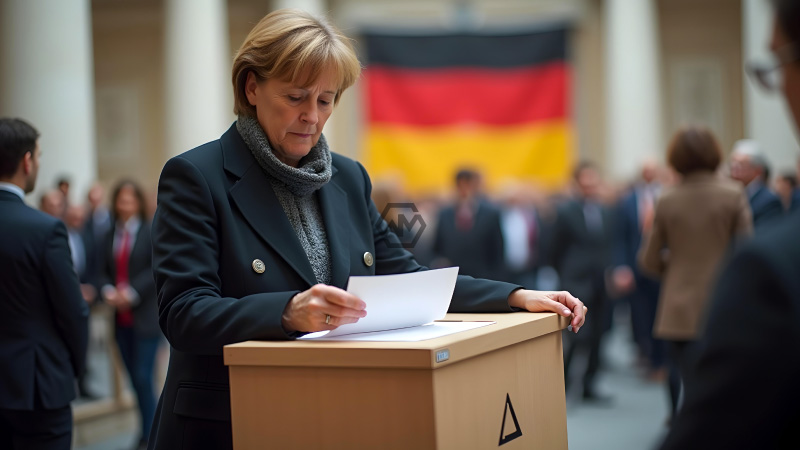- Germans head to the polls on February 23 to elect a new parliament and chancellor.
- The center-right CDU, led by Friedrich Merz, leads pre-election polls.
- Coalition talks are expected to be complex, with mainstream parties rejecting the far-right AfD.
Germany’s snap election comes amid economic challenges, political instability, and growing concerns about migration. The election will determine the country’s direction for the next four years, shaping its response to global crises and internal policy debates.
With a fragmented political landscape, coalition building will be crucial. Merz’s CDU leads but may struggle to form a government without allies. The Social Democrats (SPD) and Greens lag behind, while the far-right AfD remains excluded from partnerships.
Germany’s Political Crossroads: What’s at Stake
The election follows the collapse of Olaf Scholz’s government in late 2024, highlighting divisions over economic recovery. The CDU hopes to capitalize on voter dissatisfaction, but the SPD and Greens aim to regain support through social and environmental policies.
The far-right AfD has surged in popularity, polling second, but remains isolated due to its hardline stance on immigration. Meanwhile, smaller parties like the Free Democrats (FDP) and the Left struggle to cross the 5% threshold needed for parliamentary representation.
Germany’s economic slowdown is a major issue. After two years of contraction, voters demand stronger financial policies, investment in infrastructure, and job creation. The next government must also navigate a shifting geopolitical landscape, balancing ties with the U.S., EU, and China.
Migration is a dominant election theme, with CDU proposing stricter measures and SPD advocating for a balanced approach. The issue has fueled voter polarization, making it a key factor in coalition talks.
Germany’s election will shape its domestic policies and global influence. As coalition talks unfold, the next chancellor will face economic, social, and geopolitical challenges that will define the country’s future.
“The strength of a democracy is measured not by its leaders at the peak, but by its ability to cope with division and change.” – Angela Merkel



